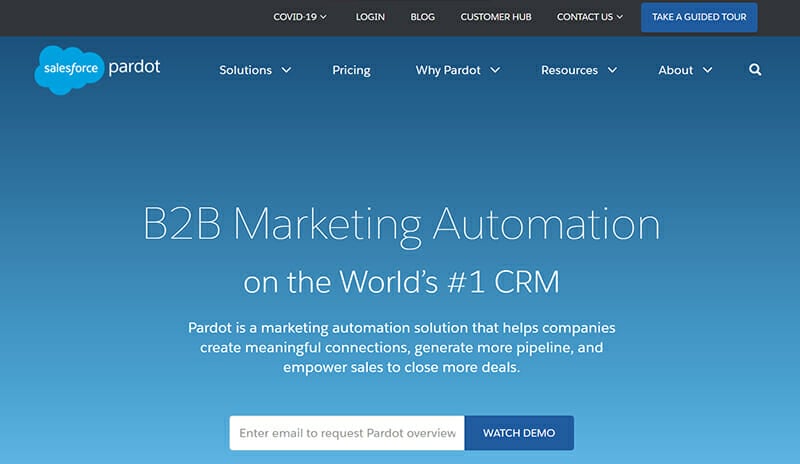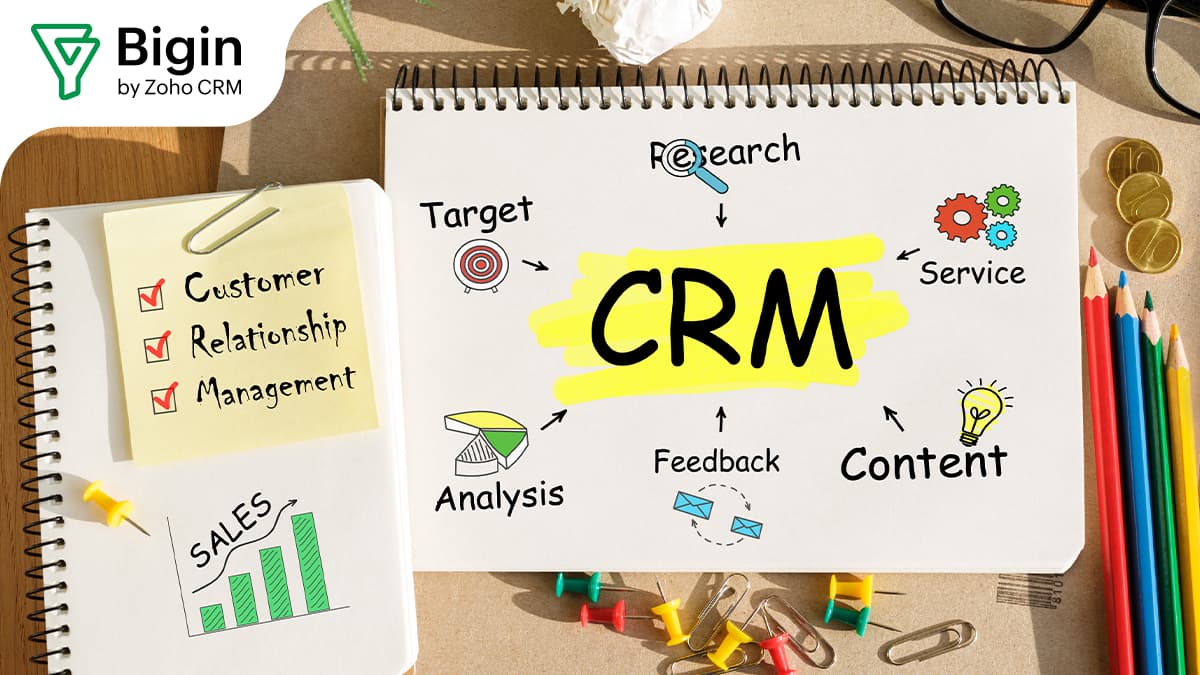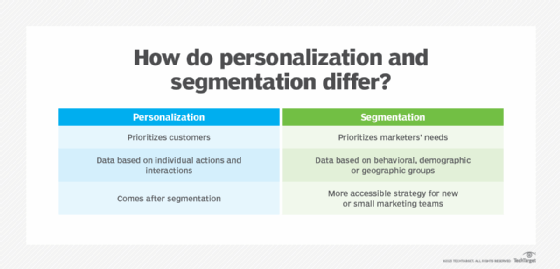The Ultimate Guide to the Best CRM for E-commerce: Boost Sales and Customer Loyalty

Unlocking E-commerce Success: Why a CRM is Your Secret Weapon
In the ever-evolving landscape of e-commerce, staying ahead of the competition requires more than just a great product and a user-friendly website. It demands a deep understanding of your customers, their behaviors, and their needs. This is where a Customer Relationship Management (CRM) system steps in, becoming an indispensable tool for e-commerce businesses of all sizes. A CRM is more than just a contact database; it’s the central nervous system of your business, connecting all your customer interactions and providing valuable insights to drive sales, enhance customer loyalty, and ultimately, boost your bottom line.
This comprehensive guide will delve into the world of CRM for e-commerce, exploring the benefits, key features, and, most importantly, the best CRM solutions available to help you thrive in the digital marketplace. We’ll examine various platforms, considering their strengths, weaknesses, and suitability for different business models. Whether you’re a startup or an established enterprise, this guide will equip you with the knowledge to choose the perfect CRM that aligns with your unique e-commerce needs.
The Power of a CRM in E-commerce: Why You Need One
Before diving into specific CRM solutions, let’s understand why a CRM is so crucial for e-commerce success. In essence, a CRM helps you:
- Centralize Customer Data: Consolidate all customer information, including contact details, purchase history, communication logs, and website activity, into a single, accessible location.
- Personalize Customer Experiences: Leverage customer data to tailor marketing messages, product recommendations, and customer service interactions, creating a more engaging and relevant experience.
- Automate Marketing and Sales Processes: Automate repetitive tasks like email marketing, lead nurturing, and order tracking, freeing up your team to focus on more strategic initiatives.
- Improve Customer Service: Provide faster, more efficient, and personalized customer support by having easy access to customer information and interaction history.
- Increase Sales and Revenue: Identify and target high-potential leads, nurture them through the sales funnel, and close deals more effectively.
- Enhance Customer Loyalty: Build stronger relationships with your customers by providing exceptional service and personalized experiences, encouraging repeat purchases and positive word-of-mouth referrals.
- Gain Actionable Insights: Analyze customer data to identify trends, understand customer behavior, and make data-driven decisions to optimize your e-commerce strategy.
In essence, a CRM acts as a central hub for all your customer-related activities, allowing you to manage, track, and optimize every interaction. This holistic approach is crucial for building strong customer relationships, driving sales growth, and achieving long-term success in the competitive e-commerce landscape.
Key Features to Look for in an E-commerce CRM
When selecting a CRM for your e-commerce business, consider these essential features:
- Contact Management: The ability to store, organize, and manage customer contact information, including names, email addresses, phone numbers, and social media profiles.
- Sales Automation: Tools to automate sales processes, such as lead scoring, opportunity management, and deal tracking.
- Marketing Automation: Features for automating marketing campaigns, including email marketing, segmentation, and lead nurturing.
- Customer Service Management: Tools to manage customer inquiries, track support tickets, and provide efficient customer service.
- E-commerce Integration: Seamless integration with your e-commerce platform (e.g., Shopify, WooCommerce, Magento) to synchronize customer data, order information, and product details.
- Reporting and Analytics: Reporting dashboards and analytics tools to track key performance indicators (KPIs), such as sales revenue, customer acquisition cost, and customer lifetime value.
- Segmentation: The ability to segment your customer base based on various criteria, such as demographics, purchase history, and website behavior, to personalize marketing efforts.
- Workflow Automation: Tools to automate repetitive tasks and streamline business processes, such as sending automated emails, updating customer records, and triggering follow-up actions.
- Mobile Accessibility: A mobile app or mobile-friendly interface to access customer data and manage your CRM on the go.
- Integration with Other Tools: Integration with other business tools, such as email marketing platforms, social media channels, and accounting software.
These core features form the foundation of a robust e-commerce CRM, enabling you to manage customer relationships effectively, streamline your operations, and drive business growth.
Top CRM Solutions for E-commerce Businesses
Now, let’s explore some of the leading CRM solutions specifically designed for e-commerce businesses:
1. HubSpot CRM
Overview: HubSpot CRM is a popular, all-in-one CRM platform that offers a robust suite of features for sales, marketing, and customer service. It’s known for its user-friendly interface, powerful automation capabilities, and seamless integration with other HubSpot tools.
Key Features:
- Free CRM with powerful features
- Contact management
- Sales automation
- Marketing automation
- Customer service tools
- Integration with popular e-commerce platforms (Shopify, WooCommerce, etc.)
- Reporting and analytics
Pros:
- Free plan with generous features
- User-friendly interface
- Strong marketing automation capabilities
- Excellent integration with other HubSpot tools
- Scalable for businesses of all sizes
Cons:
- Limited features in the free plan
- Some advanced features require paid subscriptions
Ideal for: Small to medium-sized businesses (SMBs) looking for an affordable and user-friendly CRM with strong marketing automation capabilities.
2. Salesforce Sales Cloud
Overview: Salesforce Sales Cloud is a leading enterprise-grade CRM platform that offers a comprehensive suite of features for sales, marketing, and customer service. It’s known for its scalability, customization options, and robust reporting capabilities.
Key Features:
- Contact management
- Sales automation
- Marketing automation
- Customer service management
- Advanced reporting and analytics
- Customization options
- Integration with a wide range of third-party apps
Pros:
- Highly scalable and customizable
- Powerful reporting and analytics
- Extensive integration options
- Suitable for large enterprises
Cons:
- Complex interface
- Steep learning curve
- Expensive
Ideal for: Large enterprises with complex sales processes and a need for advanced customization and reporting capabilities.
3. Zoho CRM
Overview: Zoho CRM is a versatile and affordable CRM platform that offers a comprehensive suite of features for sales, marketing, and customer service. It’s known for its ease of use, customization options, and strong integration capabilities.
Key Features:
- Contact management
- Sales automation
- Marketing automation
- Customer service management
- Workflow automation
- Customization options
- Integration with Zoho apps and third-party apps
Pros:
- Affordable pricing
- User-friendly interface
- Customization options
- Strong integration capabilities
- Suitable for SMBs and larger businesses
Cons:
- Some advanced features require paid subscriptions
- Interface might feel slightly less polished than some competitors
Ideal for: SMBs and larger businesses looking for an affordable, customizable, and feature-rich CRM with strong integration capabilities.
4. Pipedrive
Overview: Pipedrive is a sales-focused CRM platform designed to help sales teams manage their leads, track deals, and close more sales. It’s known for its intuitive interface, visual pipeline, and focus on sales productivity.
Key Features:
- Contact management
- Sales pipeline management
- Deal tracking
- Sales automation
- Reporting and analytics
- Integration with popular apps
Pros:
- Intuitive and user-friendly interface
- Visual sales pipeline
- Focus on sales productivity
- Affordable pricing
Cons:
- Limited marketing automation capabilities
- Not as feature-rich as some competitors
Ideal for: Sales teams and SMBs focused on improving sales productivity and managing their sales pipeline effectively.
5. Agile CRM
Overview: Agile CRM is a customer relationship management (CRM) platform that combines sales and marketing automation. It offers a user-friendly interface, a wide range of features, and affordable pricing. It is designed to help businesses of all sizes to manage their sales, marketing, and customer service activities.
Key Features:
- Contact management
- Sales automation
- Marketing automation
- Customer service management
- Workflow automation
- Customization options
- Integration with a wide range of third-party apps
Pros:
- Affordable pricing
- User-friendly interface
- Strong marketing automation capabilities
Cons:
- Limited customer service features
Ideal for: Small to medium-sized businesses (SMBs) looking for an affordable and user-friendly CRM with strong marketing automation capabilities.
6. Zendesk Sell
Overview: Zendesk Sell is a CRM platform that focuses on sales teams. It offers features to help sales reps manage their leads, track deals, and close sales. It integrates well with the broader Zendesk suite of customer service tools.
Key Features:
- Contact management
- Sales automation
- Deal tracking
- Reporting and analytics
- Integration with Zendesk Support
Pros:
- Easy to use
- Good integration with Zendesk Support
- Strong reporting capabilities
Cons:
- Can be expensive
- Less focus on marketing automation
Ideal for: Businesses that already use Zendesk for customer service and want a CRM focused on sales.
7. Freshsales
Overview: Freshsales, by Freshworks, is a CRM platform designed to help sales teams manage their leads, track deals, and close sales. It’s known for its user-friendly interface, built-in phone features, and affordable pricing.
Key Features:
- Contact management
- Sales automation
- Deal tracking
- Built-in phone and email
- Reporting and analytics
Pros:
- User-friendly interface
- Built-in phone and email features
- Affordable pricing
Cons:
- Limited advanced features
Ideal for: SMBs looking for an affordable and user-friendly CRM with built-in phone and email features.
Choosing the Right CRM: Factors to Consider
Selecting the best CRM for your e-commerce business involves careful consideration of several factors:
- Business Size and Complexity: Your business size and complexity will influence the features and scalability you need. Small businesses may benefit from simpler, more affordable solutions, while larger enterprises may require more robust and customizable platforms.
- Budget: CRM pricing varies significantly. Consider your budget and the cost of different CRM solutions, including subscription fees, implementation costs, and ongoing maintenance expenses. Evaluate the value proposition of each CRM, considering its features, functionality, and integration capabilities.
- Integration Needs: Ensure the CRM integrates seamlessly with your existing e-commerce platform, marketing automation tools, email marketing software, and other business applications.
- Ease of Use: Choose a CRM with a user-friendly interface and intuitive navigation to ensure your team can easily adopt and utilize the system. Consider the learning curve and the availability of training resources.
- Features and Functionality: Identify the essential features you need, such as contact management, sales automation, marketing automation, customer service management, and reporting and analytics. Prioritize the features that align with your business goals and objectives.
- Scalability: Select a CRM that can scale with your business as it grows. Consider the platform’s ability to handle increasing volumes of data, users, and transactions.
- Customer Support: Evaluate the quality of customer support provided by the CRM vendor. Look for responsive and helpful support channels, such as email, phone, and live chat.
- Reviews and Ratings: Research customer reviews and ratings to get insights into the experiences of other users. Consider the platform’s reputation and its track record of customer satisfaction.
By carefully evaluating these factors, you can narrow down your options and choose the CRM that best fits your specific e-commerce needs.
Implementing Your E-commerce CRM: Best Practices
Once you’ve selected a CRM, successful implementation is crucial for maximizing its benefits. Here are some best practices to follow:
- Define Your Goals: Clearly define your business goals and objectives for implementing the CRM. This will help you align your CRM strategy and measure your success.
- Plan Your Implementation: Create a detailed implementation plan, including timelines, tasks, and responsibilities.
- Clean and Migrate Your Data: Clean and migrate your existing customer data to the CRM, ensuring data accuracy and consistency.
- Customize Your CRM: Customize the CRM to fit your specific business processes and workflows.
- Train Your Team: Provide comprehensive training to your team on how to use the CRM effectively.
- Integrate with Other Systems: Integrate the CRM with your e-commerce platform, marketing automation tools, and other business applications.
- Monitor and Optimize: Continuously monitor the CRM’s performance and make adjustments as needed to optimize its effectiveness.
- Start Small and Scale: Begin with a pilot project to test and refine your CRM implementation before rolling it out to your entire organization.
- Get Feedback: Gather feedback from your team to identify areas for improvement and ensure the CRM meets their needs.
Following these best practices will help you successfully implement your CRM and realize its full potential.
The Future of CRM in E-commerce
The e-commerce landscape is constantly evolving, and so is the role of CRM. Here’s what you can expect in the future:
- AI-Powered CRM: Artificial intelligence (AI) will play an increasingly important role in CRM, automating tasks, providing predictive insights, and personalizing customer experiences.
- Hyper-Personalization: CRM will enable businesses to deliver hyper-personalized experiences based on individual customer data and behavior.
- Omnichannel Integration: CRM will seamlessly integrate with all customer touchpoints, including websites, social media, email, and mobile apps.
- Focus on Customer Experience: CRM will become even more focused on delivering exceptional customer experiences, driving customer loyalty, and fostering long-term relationships.
- Integration with Emerging Technologies: CRM will integrate with emerging technologies, such as augmented reality (AR), virtual reality (VR), and the Internet of Things (IoT), to create new customer engagement opportunities.
As technology advances, CRM will continue to evolve, providing e-commerce businesses with even more powerful tools to manage customer relationships, drive sales, and achieve sustainable growth.
Conclusion: Embrace the Power of a CRM
In conclusion, a CRM is no longer a luxury but a necessity for e-commerce businesses striving for success. By centralizing customer data, automating processes, personalizing experiences, and providing valuable insights, a CRM empowers you to build stronger customer relationships, drive sales growth, and achieve long-term success. By carefully evaluating your needs, choosing the right CRM solution, and implementing it effectively, you can unlock the full potential of your e-commerce business and thrive in the competitive digital marketplace. Don’t wait – embrace the power of a CRM and take your e-commerce business to the next level!



